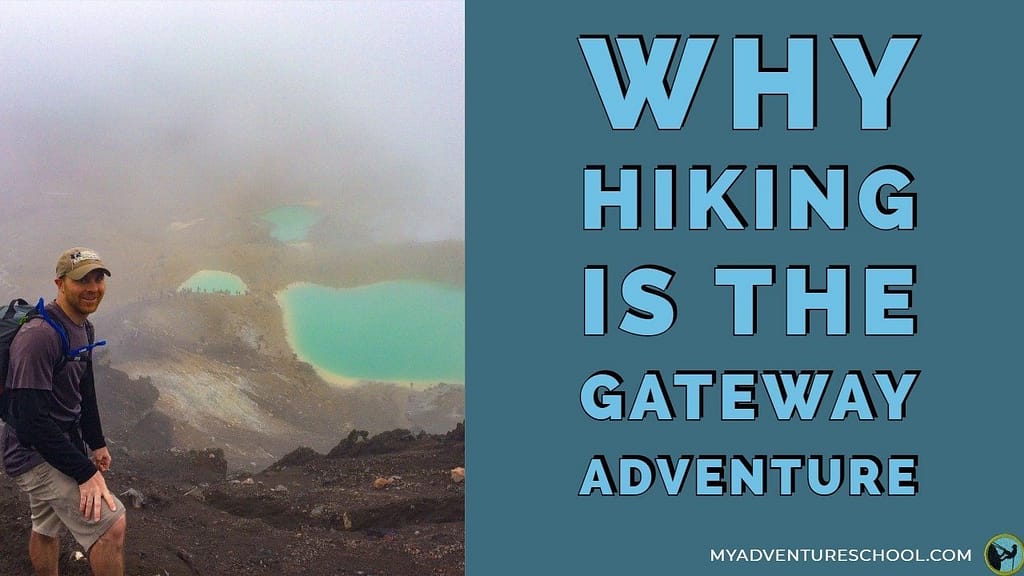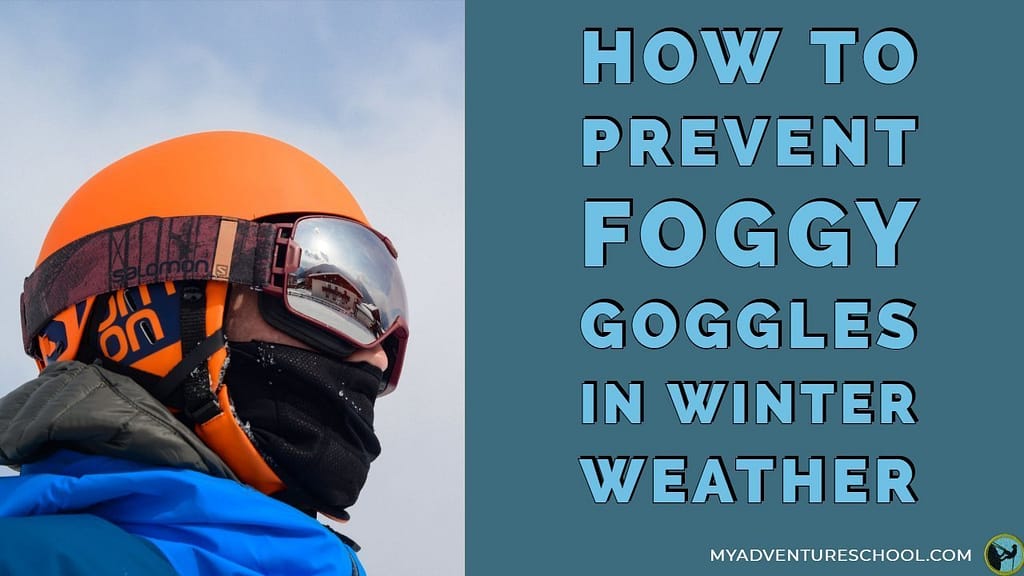What is Giardia?
Giardia is a protozoan parasite that causes an infection called giardiasis in animals and humans. We won’t get too scientific in this article but go here for all the nitty-gritty on giardia.
For simplicity, we’ll refer to giardiasis (the disease) as just giardia (the parasite) in this article. Giardia causes serious diarrhea and gastrointestinal distress and can lead to dehydration and will definitely leave you miserable for the duration.
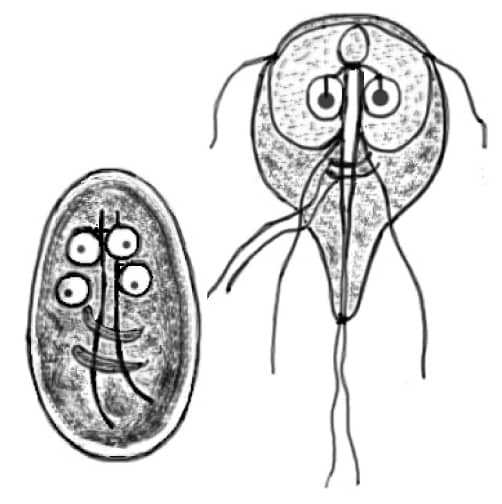
The other symptoms of giardia include:
- Fatigue and weakness
- Nausea / Vomiting
- Loss of appetite
- Bloating and abdominal cramps
- Weight Loss
- Excessive gas or flatulence
- Headaches
- Abdominal Pain
How do you get giardia?
Giardia lives in water and passes between animal hosts through their poop. That’s why it’s called beaver fever. Animals like beaver, deer, skunks, porcupines, dogs, cats, and humans drink contaminated water and then poop in other water and the cycle continues.
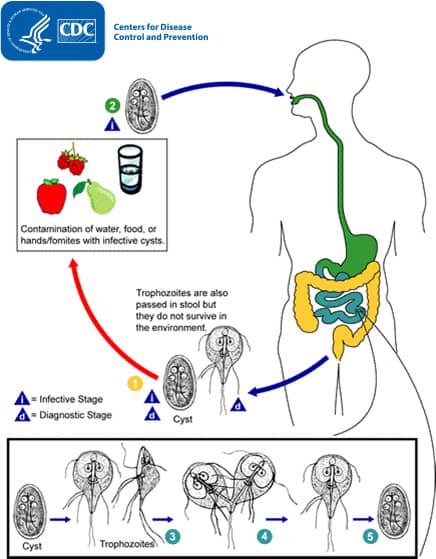
This is why you can’t just lean down and take a long drink out of that cool mountain stream like they do in the movies. You’ll likely end up with giardia along with quenched thirst.
Where is giardia found?
Giardia is found throughout the entire world. You should assume any water you’re drinking when out in the wild that isn’t coming directly out of the ground is contaminated with giardia (and potentially other nasties). It doesn’t matter if the water is flowing or stagnant, warm or cold, giardia is likely present.
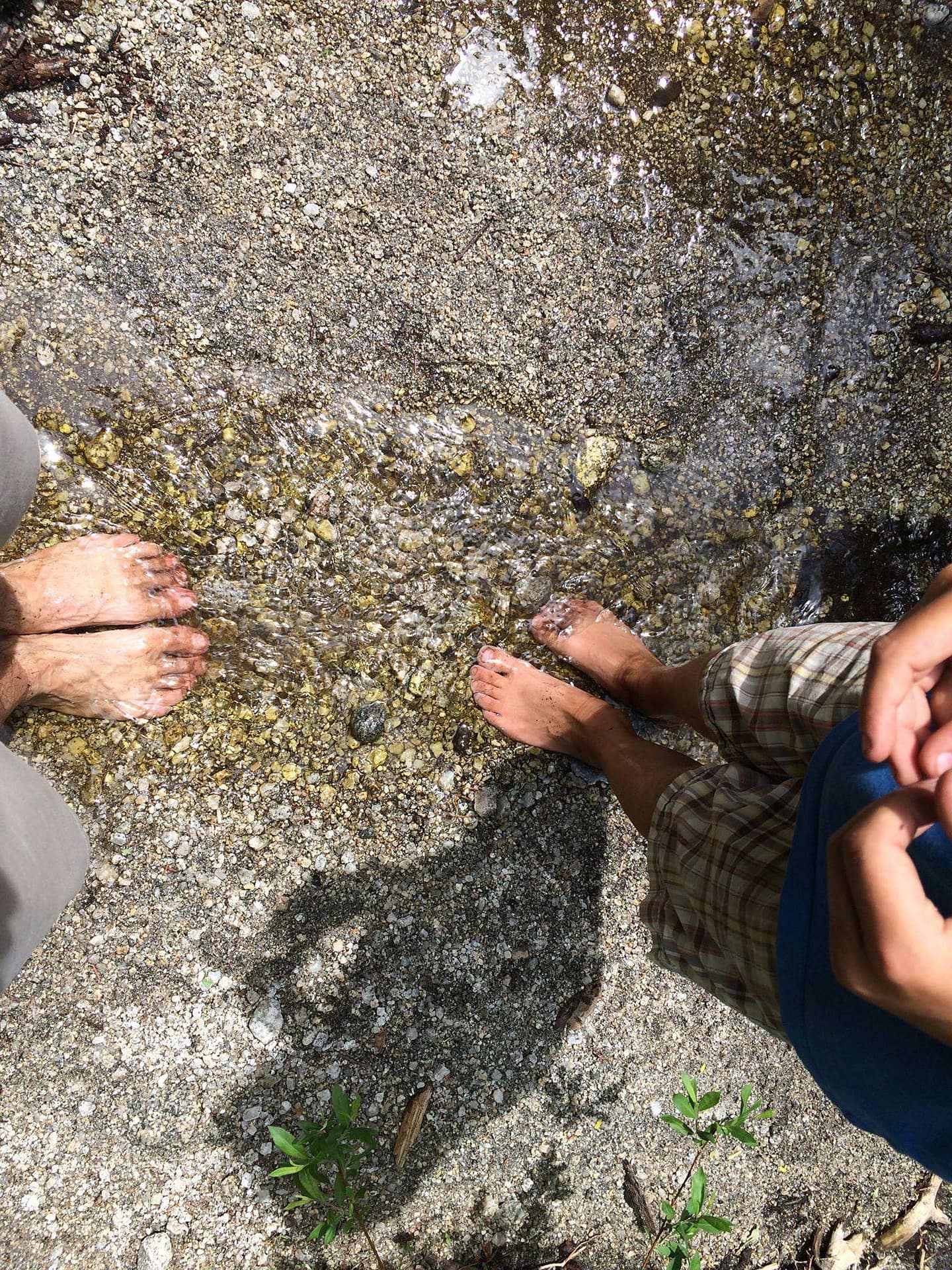
How long does it take before giardia symptoms show up?
The incubation period for giardia is highly variable with a range anywhere from 1 to 45 days but typically you won’t notice any symptoms for about a week or two after drinking contaminated water.
How long does giardia last?
Giardia duration can also be highly variable. Typically, you’ll be sick for about 2-6 weeks, but sometimes symptoms subside for a while and flare up again when giardia parasites find good conditions for growth. This can go on for as long as a year even if treated.
How do you treat giardia?
Giardia often goes away on its own, but if you see a doctor, you’ll likely be prescribed an antiparasitic drug for treatment of giardiasis, like Metronidazole. This will help shorten the duration of the illness, but to treat the symptoms, you’ll likely just need to hydrate well, stay near a bathroom, and get plenty of rest.
What can you do to avoid giardia?
So now you know more than you likely wanted to know about giardia. The main thing you likely came here to learn is how you can avoid giardia while out in the wilderness hiking, biking, trail running, camping, and playing.
Obviously, the first step is to avoid ingesting any water that hasn’t been treated first. If you know how to look, you can often find spring water that doesn’t need treating, but unless you know what you’re doing, always treat your water.
Even if it’s snowmelt, an animal could have pooped in the snow above you and giardia will be melting into the water right along with the snow.
The risk goes down as you move closer to the source of clean water, but if animal feces can get in your water source, consider it contaminated.
If you can’t find clean water, you’ll have to filter or treat the water you do have.
To filter water effectively to remove giardia spores and trophozoite (the feeding stage), you need to have a filter with pore sizes less than 1 micron. This means you can’t use a sock, t-shirt, or coffee filter. You’ll need a dedicated water filter.
Here’s the filter I pack on most of my adventures.
A more reliable water treatment method than filtering is purification. Using chlorine to kill any parasites or cysts will ensure clean and safe water. Here are the tablets I use that are also good against another parasite that can be notoriously hard to kill – cryptosporidium.
You can also boil any water you collect for at least a minute to kill anything living – including giardia.
When might you purposefully risk getting giardia?
So are there times when I’d risk getting giardia? Yes! As I explained above, giardia has an incubation period of about 1 to 45 days. This means you have a grace period from when you drink bad water to when you get sick.
In a survival scenario where if I don’t get water, I’ll end up dehydrated and dead before I’ll start getting symptoms of giardia, I’ll take the giardia any day.
You can reduce the odds of getting giardia by following the four Cs of finding clean water: cold, clear, close, current.
